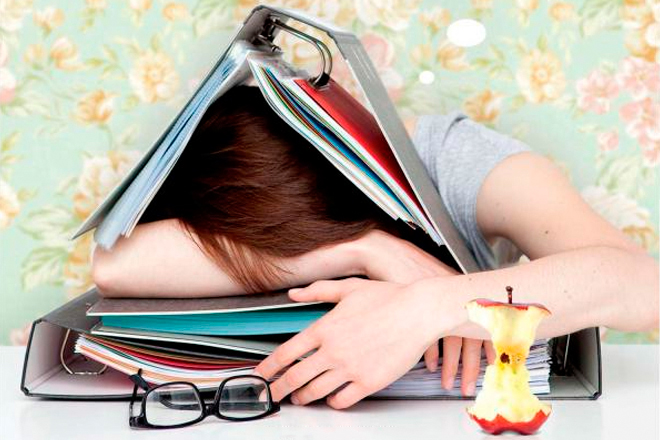Quinn Cummings doesn’t make it look easy. In a world where bookshelves groan with authoritative guides on how to distill any aspect of parenting into 10 easy steps that can be done in 30 short days, she boldly sets the tone in her new book on her “adventures in home schooling” by having a panic attack in her laundry room on the first page. From there, Cummings, beloved to Gen-Xers everywhere for her childhood roles in “The Goodbye Girl” and “Family,” leads the reader through her frustrating, fulfilling, frequently very funny quest to build a meaningful education for her daughter Alice.
Part memoir, part guide to understanding the rapidly growing home-school movement, Cummings’ “The Year of Learning Dangerously” is, in her own words, her way of “explaining home schooling to people who don’t home-school.” It is, like many great adventures, one the author didn’t originally envision ever taking, and one she often had to improvise along the way. Yet what’s clear throughout is that Cummings is a devoted parent who understands that in an increasingly standardized, data-driven educational system, there’s more than one way to raise a curious, intellectually engaged kid. The result is a tender, witty celebration of the love of learning, and a refreshingly sane call for all of us – home-schoolers, unschoolers, old schoolers – to break out of the pedagogical cookie-cutter mold. Our children are all different; shouldn’t we adjust our educational expectations and experiences to reflect that?
Salon spoke to Cummings recently about the challenges of home schooling, and how to answer those well-meaning friends who ask, “But what about socialization?”
From the tone of the book, it seems like you have plenty to keep you busy just raising Alice and managing her education. What made you decide to throw book writing into the mix?
When I was so miserable and having a panic attack in my laundry room, I thought, “I’ve read all these books and those women were all so serene.” But I couldn’t do this being serene and thinking this was the most wonderful thing. So I looked around some more, and then I thought, “Oh crud, I have to write the book I wished someone had given me.”
How did you balance the memoir and journalism aspects of the book?
My orders to myself when I started were to be specific, discreet and honest. I knew if I wrote an entire book just about us the whole discreet part would go to hell.
I also knew I wanted someone to show me what a gathering of fundamentalist home-schoolers was like because I wasn’t going to get an invitation on my own. I tried to find the groups that were most typical or the ones I was most asked about.
How does your daughter feel about the book and being the subject of it?
She’s very proud of it. She’s been an extraordinary good sport about everything. With some of the incidents in the book, the only thing I could give her was distance. She knew she could say, “That was me then and that’s not me now.”
She is very excited for me. My daughter’s gift is that she’s a good editor. At first when she was reading it, I thought, “That’s adorable that she wants to do that.” And then she came back with notes and I thought, “That’s really good!” She has seen this book from the beginning. She has watched it be born. And it’s like birth — it is a difficult and not always aesthetically pleasing process.
There are so many misconceptions about home-schoolers already — yet you boldly plunge in and admit your fears and mistakes along the way. Were you concerned about being viewed as not helping the cause?
Faith can’t be blind — not if it’s going to be meaningful. When I was writing, I would see people were talking about my book on certain blogs and saying, “What could she possibly know? It’s another book by another know-nothing.” I wanted to say, I understand. We’ve been the punch line of jokes for a very long time. We cannot assume everyone gets us. The majority of home-schoolers are people of faith but with each passing year there are more people whose path is different. We have go out and explain that. I’m trying to explain home schooling to people who don’t home-school.
What are the kinds of responses you get from other parents about home schooling?
The most common thing I hear is, “What about socialization?” And I answer that my daughter is socialized and then they tell me about some problem with their local school. Note that I didn’t say problem with the teachers. They are doing an extraordinary job.
What I’m hearing from parents who have left the system for different reasons is how they’d like a relationship with a school. There are parents who would like access to a lab or a music room or a gym. This is our children’s one shot at education. In a perfect world, the system should be able to accommodate them. My wish list for education is that it become smaller, smarter and more supple.
What would you say to people that you want them to know about home-schoolers?
That we’re not so different. People look at me and say, “Oh I couldn’t do it.” I would suggest they’re probably doing a bit of it already. Virtually 100 percent of the people I ask say they’re far more involved with their children’s education than their parents were with them.
There are plenty of us looking at our children and saying, “How can I make their experience better?” That is the question that started me on this adventure. And I don’t want to be the only voice here. I just want to be part of the conversation.


